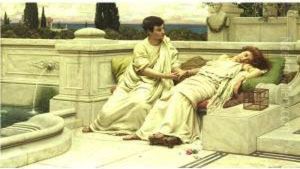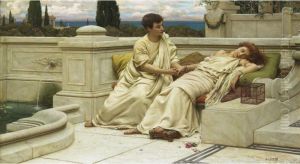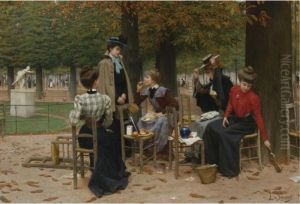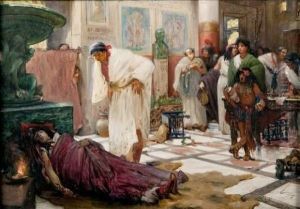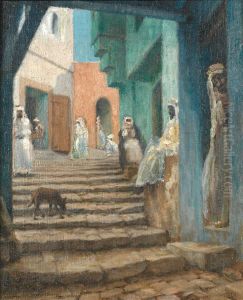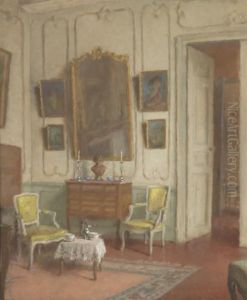Leonce Joseph V. De Joncieres Paintings
Léonce Joseph Victorin de Joncières was a French composer and music critic, recognized for his contributions to the late 19th-century French opera scene. Born in Paris on April 24, 1839, de Joncières came from a family with aristocratic roots, which perhaps influenced his artistic inclinations and the circles he moved in throughout his career.
De Joncières received his musical education at the Paris Conservatoire, where he studied under influential figures such as François Bazin and Ambroise Thomas. Despite being trained in a climate that favored grand opera and the legacy of composers like Giacomo Meyerbeer, de Joncières developed a style that was distinctly his own, often characterized by a preference for dramatic intensity and a flair for orchestration.
Throughout his life, de Joncières was an active participant in the Parisian musical world, not only as a composer but also as a critic and advocate for music. He wrote several operas, including 'Dimitri' (1876), which enjoyed a degree of success and showcased his talent for integrating dramatic narrative with musical expression. His operatic works are noted for their historical and exotic subjects, aligning him with the trends of his time yet distinguished by his unique approach to composition and orchestration.
As a critic, de Joncières was known for his strong opinions and advocacy for what he saw as the true essence of French music. He was a vocal supporter of Richard Wagner's music, at a time when Wagner's works were causing division among French audiences and critics. De Joncières' openness to German romanticism and his efforts to reconcile it with French operatic traditions reflect his broader vision for a music that transcends national boundaries while retaining its distinct cultural identity.
Despite his talents and contributions, de Joncières' works have not maintained a prominent place in the standard repertoire, and he is somewhat overlooked in the annals of music history. His death on September 20, 1903, in Paris marked the end of a career that, while not achieving the enduring fame of some of his contemporaries, significantly enriched the French musical landscape of his time.
Léonce de Joncières' legacy is that of a composer who bridged traditions, a critic who championed innovation, and an artist who strove for an ideal in music that was both universal and deeply French. His life and work reflect the complexities and shifts in the musical world of 19th-century Paris, embodying the spirit of an era that sought to redefine the boundaries of opera and the arts.
